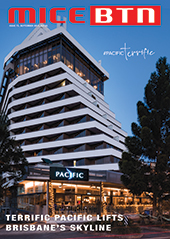Air traffic control problems back in the Australian spotlight
- BTN News
- Wednesday, 19 June 2024
In Australia, the Northern Territory capital, Darwin, is the airline industry's focus for a shortage of air traffic controllers (ATCs) that is forcing airline crews to manage their own night flights.
There currently are only limited overnight air traffic control services at Darwin, meaning from midnight, more than a dozen flights arrive or depart with little guidance from the ground.
There are 866 flights scheduled to land in Darwin this month, and runway construction work that restricts plane movements is making landings and takeoffs even more complicated, pilots say.
The Australian Transport Safety Bureau (ATSB) last year published an anonymous submission (believed to be from an air traffic controller) that highlighted a lack of understanding among controllers and flight crews about what to do in uncontrolled airspace.
The situation was “an accident waiting to happen,” the writer said.
It's not just Darwin, there also are widespread concerns about ATC staffing levels and procedures in Sydney, while at Townsville, the control tower isn't staffed at weekends and a reported 50 or so commercial services have to coordinate their own landings or takeoffs on Sundays.
A spokesperson for Airservices Australia, the Australian government agency that manages airspace, says “rosters are tight in some areas but safety is never compromised”.
About 100 new air traffic controllers have joined since 2020 and more than 70 more will join in the 2025 fiscal year, Airservices says.
Some 1,600 Qantas Group flights in 2023 were delayed because normal air traffic services were unavailable, the carrier has said, and almost 400 flights were late in the first four months of this year for the same reason.










